Skills for the Future Archival traineeships recognised in national awards
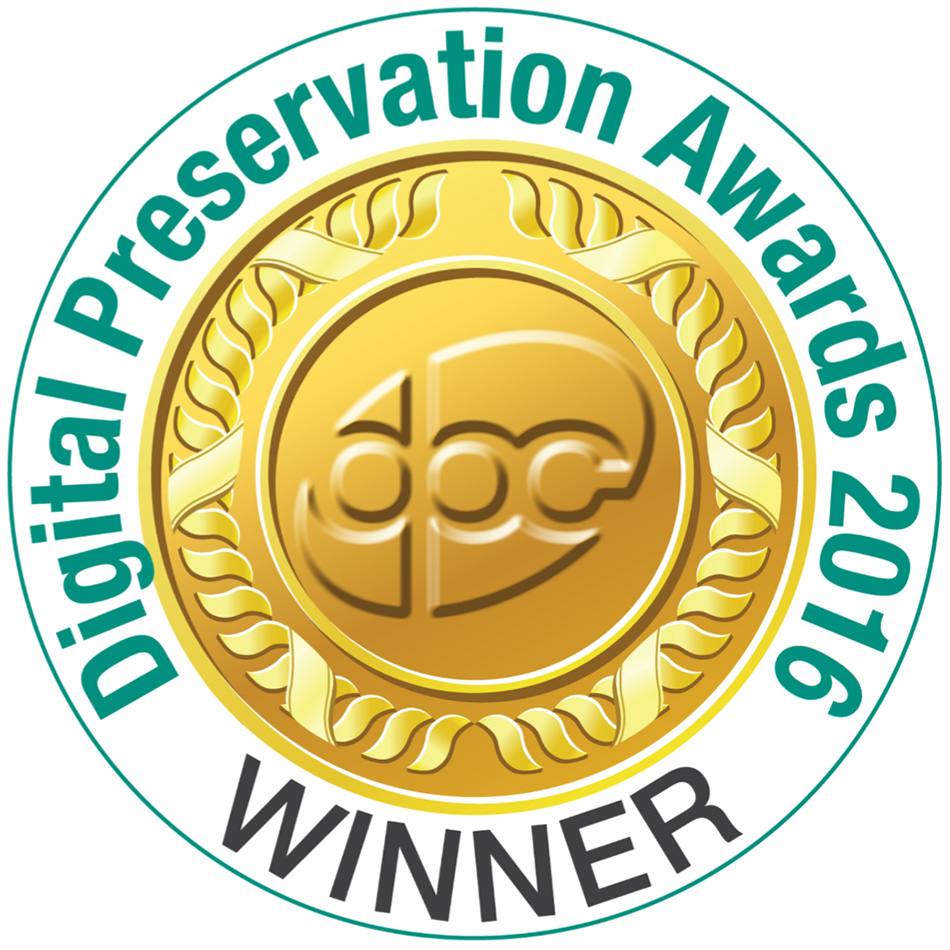 It’s with great pleasure that we are able to pass on good news about the ‘Opening Up Scotland’s Archives’ scheme, in which Special Collections is a partner.
It’s with great pleasure that we are able to pass on good news about the ‘Opening Up Scotland’s Archives’ scheme, in which Special Collections is a partner.
The National Archives and the Scottish Council on Archives were jointly awarded The NCDD Award for Teaching and Communications for their joint ‘Transforming Archives / Opening Up Scotland’s Archives’ training programme at the Digital Preservation Awards, held at the Wellcome Collection, London, on 30th November.
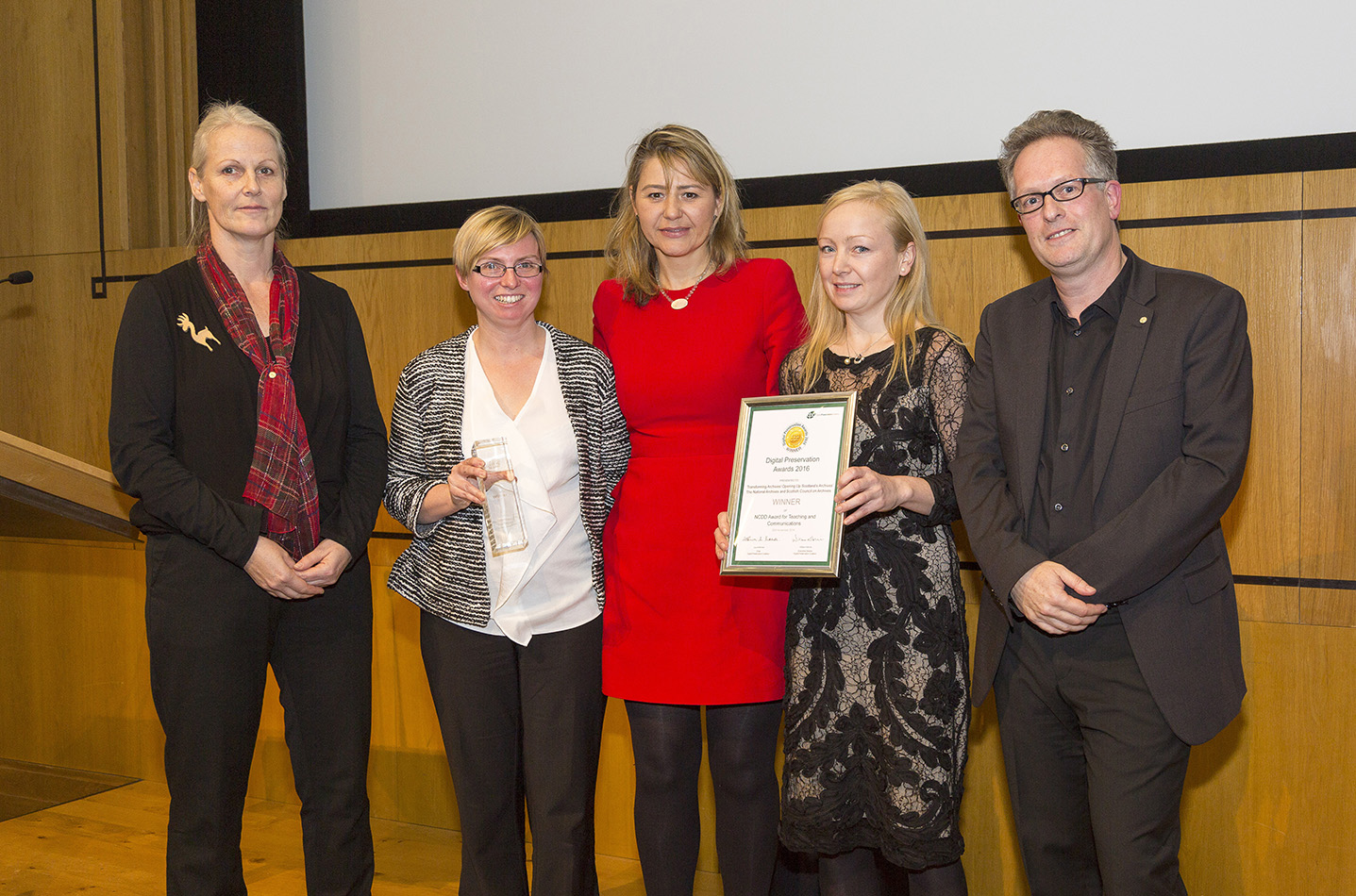
You can see the press release from the SCA here: http://www.scottisharchives.org.uk/news/announcements/dpa
The programme would not be the success it is without the enthusiasm and hard work of our trainees, past and present, and their hosts, and we share the award with them.
Supported by the Heritage Lottery Fund’s Skills for the Future programme, Opening Up Scotland’s Archives aims to develop the Scottish archives sector. It is managed by the Scottish Council on Archives.
Between 2014 and 2017, 18 paid, work-based traineeships have been provided in Scotland to create a more diverse workforce by attracting new skills and people into archive services, especially to work with communities, digital skills, social media and IT. The University Library has hosted two trainees as a host partner, along with other HE and local government archive services across Scotland. Our trainees have worked with the University’s high profile archive collections, have taken part in outreach to school and community groups and have been active on social media. Although our particular traineeships are not overtly focussed on digital preservation, the cohort as a whole has a very significant proportion of trainees working with digitisation or managing digital archival assets or doing pioneering work to scope future digital preservation needs. Yet even our ‘traditional skills’ trainees are given the opportunity to shadow Sean, our digital archives officer, and since they share an office with him, also to learn by osmosis!
Our trainees, Anabel Farrell and Catherine Hollebrandse have focused on traditional archival skills such as palaeography and cataloguing, but they have learned in a digital environment both in their daily work in the Library and through studying with the Centre for Archive and Information Studies at the University of Dundee.
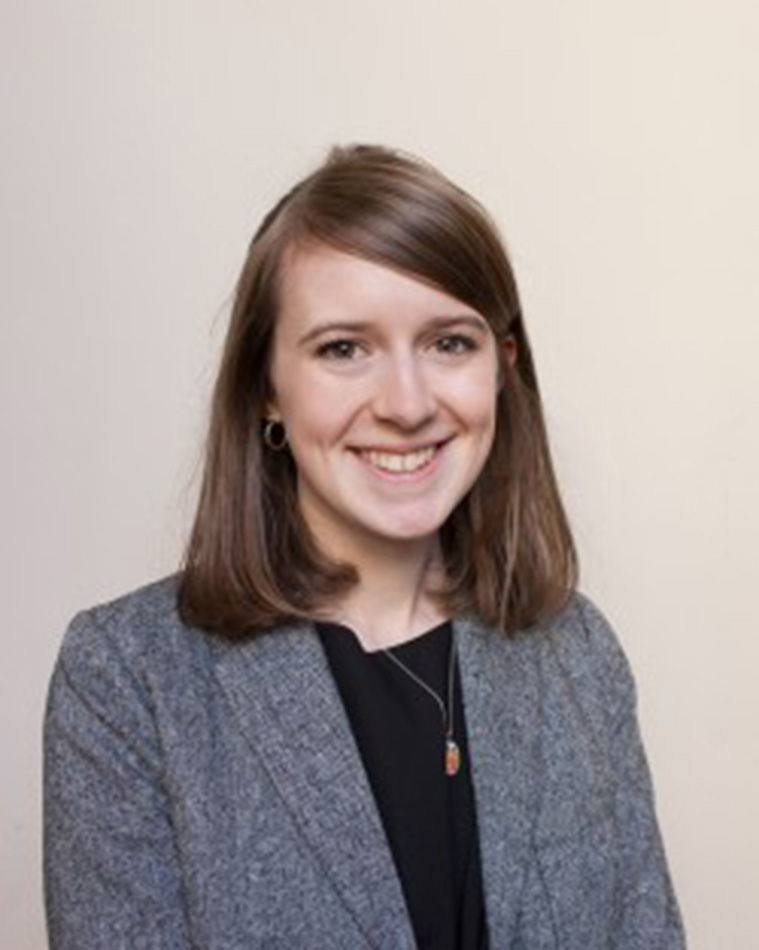 Anabel Farrell, our 2015-16 trainee, was clear from the very start that she wanted a career in archives and the paid traineeship provided her with a direct entry point to the profession. Highlights of Anabel’s year included leading a class visit from Advanced Higher History pupils from Cupar’s Bell Baxter High School, who were studying the Russian Revolution (see blog), and her providing transcriptions for the online palaeography self-help tool ReadMe! This is a collaboration between staff of the Schools of English and Computer Science and the Library which is funded by a grant from the University’s Teaching and Learning Committee. Whilst working in St Andrews Anabel took the opportunity to complete two of the modules on the University of Dundee’s postgraduate archives course, in addition to gaining a year’s worth of experience and skills from working in an archives. Anabel is now working at the University of Oxford as an Archives Assistant.
Anabel Farrell, our 2015-16 trainee, was clear from the very start that she wanted a career in archives and the paid traineeship provided her with a direct entry point to the profession. Highlights of Anabel’s year included leading a class visit from Advanced Higher History pupils from Cupar’s Bell Baxter High School, who were studying the Russian Revolution (see blog), and her providing transcriptions for the online palaeography self-help tool ReadMe! This is a collaboration between staff of the Schools of English and Computer Science and the Library which is funded by a grant from the University’s Teaching and Learning Committee. Whilst working in St Andrews Anabel took the opportunity to complete two of the modules on the University of Dundee’s postgraduate archives course, in addition to gaining a year’s worth of experience and skills from working in an archives. Anabel is now working at the University of Oxford as an Archives Assistant.
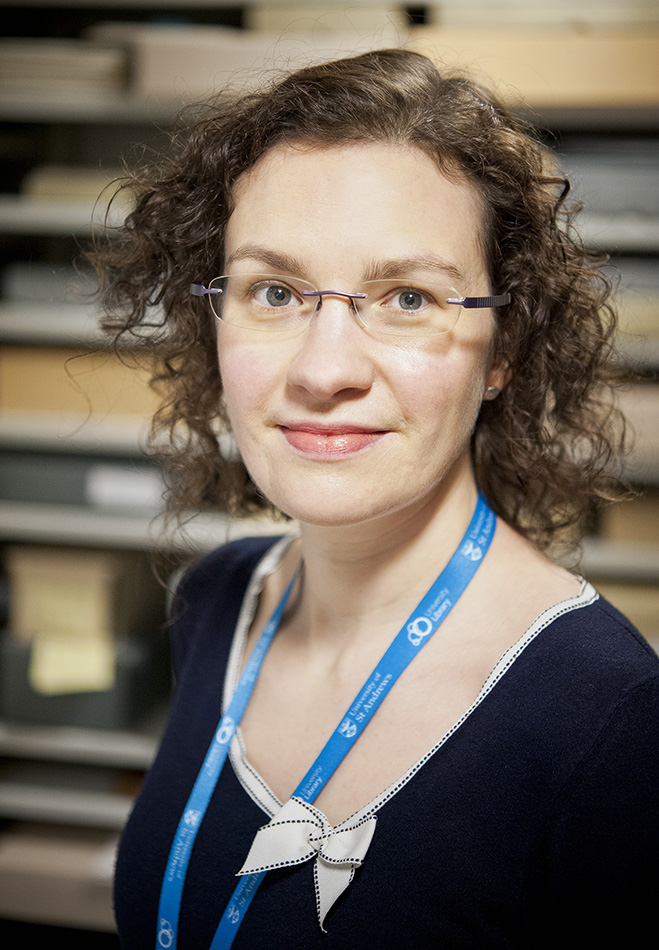 Our current trainee is Catherine Hollebrandse. A St Andrews graduate, she has a passion for helping others access communication, and previously practised as a community-based Speech and Language Therapist.
Our current trainee is Catherine Hollebrandse. A St Andrews graduate, she has a passion for helping others access communication, and previously practised as a community-based Speech and Language Therapist.
Catherine says: “As a mid-life career changer, the Skills for the Future traineeship is a truly ‘once in a lifetime’ opportunity for me to gain valuable experience in a new sector. The experience of participating in exciting projects in cataloguing and preservation, alongside intensive study of palaeography, are developing my confidence in traditional archive skills, as well as giving me an opportunity to come into contact with the wonderful materials of the University’s collections.”
Congratulations to the three cohorts of Scottish trainees http://www.scottisharchives.org.uk/sff/trainees and their hosts: 2016-17: Midlothian Archives, Glasgow City Archives, Glasgow School of Art, Tasglann nan Eilean, National Records of Scotland, Lothian Health Services Archive and University of St Andrews;

2015-16: Glasgow City Archives, Glasgow School of Art, Midlothian Archives, University of Glasgow Archive Services, North Lanarkshire Archives, Falkirk Archives and University of St Andrews;

2014-15: Glasgow City Archives, University of Glasgow Archives, University of Edinburgh, University of Dundee and Glasgow School of Art.

The Digital Preservation Awards 2016 were hosted by the Digital Preservation Coalition and the evening celebrated the achievements of those people and organisations who have made significant and innovative contributions to maintaining a digital legacy. Other awards included: DPC Award for Safeguarding the Digital Legacy, won by Amsterdam Museum and partners; the inaugural DPC Award for the most Outstanding Digital Preservation Initiative in Industry (won by HSBC’s Global Digital Archive System); and the Software Sustainability Institute Award for Research and Innovation (won by Dutch NCDD/NDE). The full list of winners can be found here http://www.dpconline.org/advocacy/awards/2016-digital-preservation-awards/the-winners and the same website has a full list of finalists and a video of the event is here, with the SCA triumph at about 48 minutes in, at http://www.dpconline.org/advocacy/awards/2016-digital-preservation-awards/live-stream
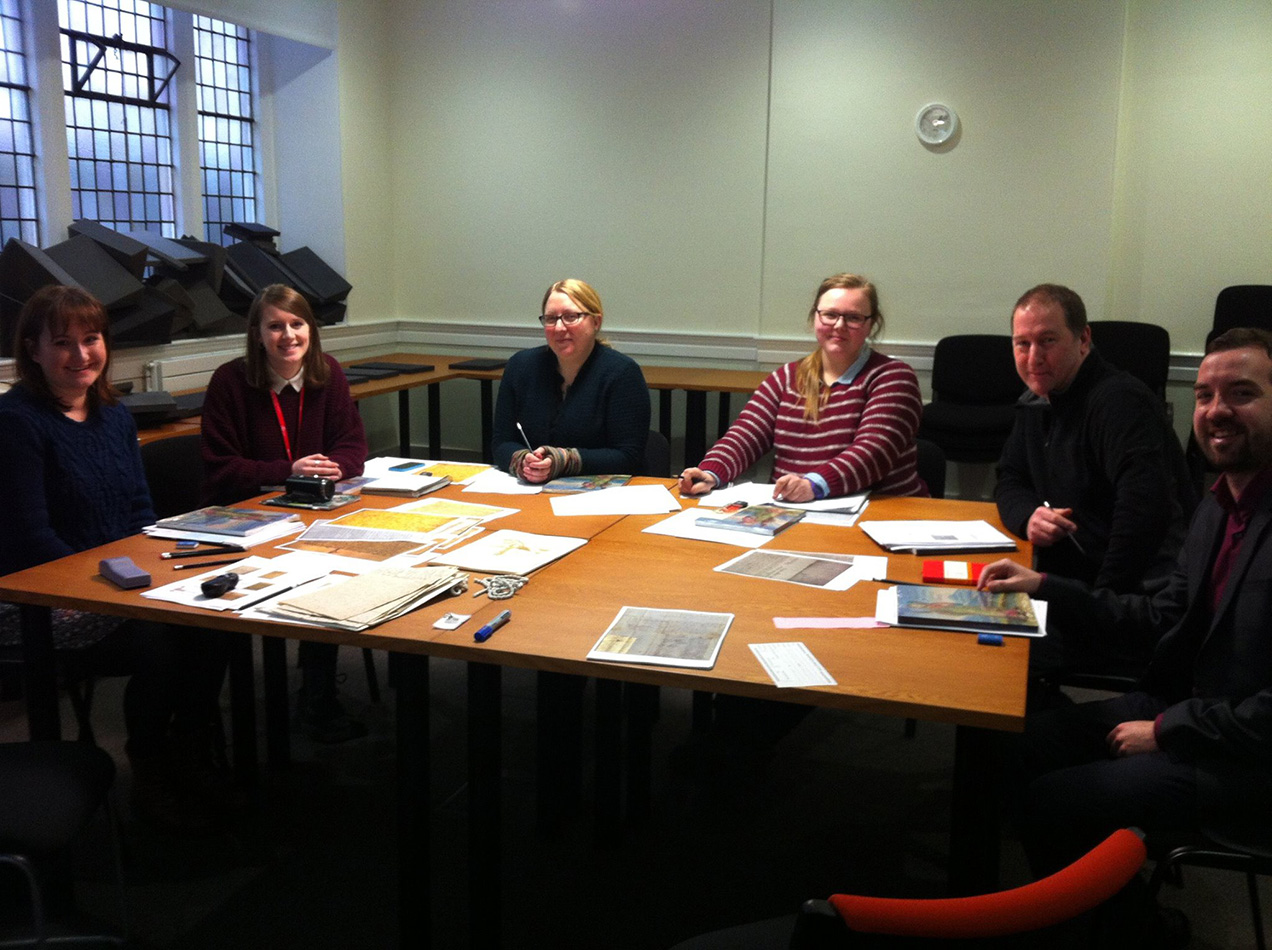
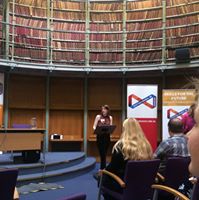
Rachel Hart
Keeper of Manuscripts and Muniments and Trustee, Scottish Council on Archives
Good news but not many men among the archival staff in the photographs. This is a puzzle to me as the majority of people accessing archives (when I visit the historical reading room in Edinburgh) are men. There are no male staff members in the Ayrshire archives. I suspect this is the situation across Scotland. can anyone explain why this is so?
Thanks for your comment James. According to recent surveys the male:female ratio of archive users in the UK is about the same. (http://www.archives.org.uk/images/documents/PSQG/Survey_of_visitors_to_uk_archives_2012_-_national_report.pdf) There are definitely more women than men working in libraries (about 79% women to 21% men, according to http://www.cilip.org.uk/sites/default/files/documents/executive_summary_nov_2015-5_a4web.pdf). 72% of all applicants to the trainee programme are female, and the final cohorts tend to reflect this - I'm not sure that we have an answer as to why the number of men applying is so low!
[…] the final week of my Skills for the Future (SFF) archive traineeship at Special Collections, it feels timely to take stock of the experiences I’ve had in during the […]